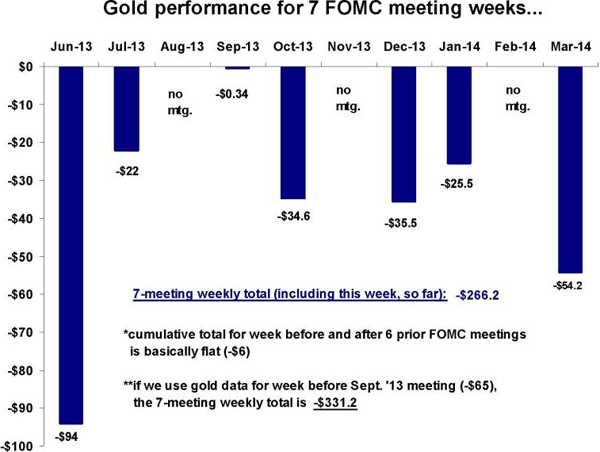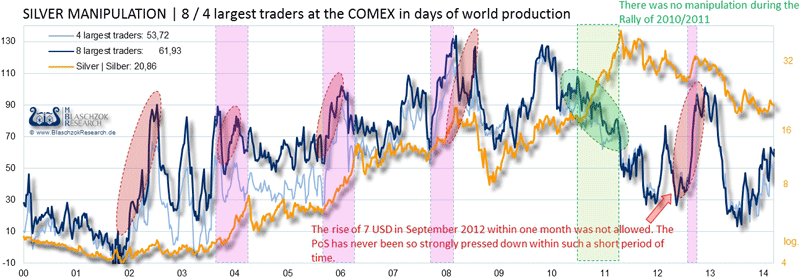Brent, WTI Rise With Equities Amid Crimea Annexation
By Mark Shenk Mar 21, 2014 4:34 PM GMT+0100
West Texas Intermediate and Brent crudes climbed after Russia completed annexing Crimea, escalating the worst standoff with the West since the Cold War, and as global equities gained on economic optimism.
WTI oil rose as much as 1.4 percent and Brent 1.2 percent. Russian President Vladimir Putin signed legislation needed to absorb the Black Sea peninsula and its port of Sevastopol from Ukraine. The Standard & Poor’s 500 Index advanced to a record on better-than-estimated U.S. economic data, and emerging market stocks increased on speculation China is loosening funding restrictions for property developers and banks.
“Crude is up on concern that Putin may decide over the weekend that areas of eastern Ukraine might also prefer to be part of Russia,” said Bill O’Grady, chief market strategist at Confluence Investment Management in St. Louis, which oversees $1.4 billion. “We had positive regional economic data in the U.S. yesterday, which is giving stocks a boost.”
WTI for May delivery advanced $1.17, or 1.2 percent, to $100.07 a barrel at 11:03 a.m. on the New York Mercantile Exchange. The April contract expired yesterday after dropping 0.9 percent to $99.43. The volume of all futures traded was 11 percent below the 100-day average for the time of day.
Brent for May settlement rose $1.15, or 1.1 percent, to $107.60 a barrel on the London-based ICE Futures Europe exchange. Futures are down 0.9 percent this week. Trading volume was 10 percent lower than the 100-day average.
Brent Premium
Brent, the benchmark for more than half the world’s oil, traded at a $7.53 premium to WTI.
The U.S. announced more sanctions yesterday targeting aides and associates of Putin, including billionaire Gennady Timchenko, co-founder of energy-trading company Gunvor Group Ltd. The U.S. Treasury Department alleged that Putin has a direct financial interest in Gunvor. The company said that Putin has never had any ownership and Timchenko had already sold his entire stake to his partner, Torbjorn Tornqvist.
The broader sanctions marked an escalation of efforts to punish Putin and his associates for Russia’s move into Crimea. Timchenko was one of 20 people added to a list of individuals banned from entering the U.S., with any assets in the country frozen and a bar on doing business with U.S. companies.
“Crude is rising because Putin’s actions are getting more provocative,” said Dan Flynn, an energy market analyst at Price Futures Group in Chicago. “We may be swimming in supply, but I wouldn’t want to be short going into the weekend with all of the tension between Russia and Ukraine. Too much could go wrong.”
Other Markets
The S&P 500 climbed as much as 0.6 percent to 1,883.97. Emerging-market equities advanced, led by the biggest gain in five weeks for Hong Kong-listed Chinese shares, and the dollar weakened. The Standard & Poor’s GSCI Index, a gauge of 24 raw materials, increased as much as 0.7 percent.
There were 320,000 claims for jobless payments filed in the U.S. last week following 315,000 in the prior period, the lowest back-to-back readings since late November, Labor Department data showed yesterday. Factories in the Federal Reserve Bank of Philadelphia region grew at a faster pace, while gains in building permits and easier credit conditions boosted the index of leading indicators, figures released yesterday showed.
Sentiment Shift
“It seems we are up on both sides of the Atlantic on the shift in Chinese sentiment,” said Addison Armstrong, director of market research at Tradition Energy in Stamford, Connecticut. “We might be up for the day but I believe the market will soon drop because of the fundamentals. Crude inventories continue to climb as we see big gains in U.S. production.”
U.S. crude stockpiles climbed by 5.85 million barrels to 375.9 million last week, the highest level since Nov. 29, an Energy Information Administration report showed on March 19. Production increased to 8.215 million barrels a day, the highest rate in almost 26 years, according to the EIA, the Energy Department’s statistical arm.
WTI may decline next week on concern that U.S. stockpiles will rise, according to a Bloomberg News survey. Eighteen of 39 analysts and traders surveyed, or 46 percent, predict prices will drop through March 28.
By Mark Shenk Mar 21, 2014 4:34 PM GMT+0100
West Texas Intermediate and Brent crudes climbed after Russia completed annexing Crimea, escalating the worst standoff with the West since the Cold War, and as global equities gained on economic optimism.
WTI oil rose as much as 1.4 percent and Brent 1.2 percent. Russian President Vladimir Putin signed legislation needed to absorb the Black Sea peninsula and its port of Sevastopol from Ukraine. The Standard & Poor’s 500 Index advanced to a record on better-than-estimated U.S. economic data, and emerging market stocks increased on speculation China is loosening funding restrictions for property developers and banks.
“Crude is up on concern that Putin may decide over the weekend that areas of eastern Ukraine might also prefer to be part of Russia,” said Bill O’Grady, chief market strategist at Confluence Investment Management in St. Louis, which oversees $1.4 billion. “We had positive regional economic data in the U.S. yesterday, which is giving stocks a boost.”
WTI for May delivery advanced $1.17, or 1.2 percent, to $100.07 a barrel at 11:03 a.m. on the New York Mercantile Exchange. The April contract expired yesterday after dropping 0.9 percent to $99.43. The volume of all futures traded was 11 percent below the 100-day average for the time of day.
Brent for May settlement rose $1.15, or 1.1 percent, to $107.60 a barrel on the London-based ICE Futures Europe exchange. Futures are down 0.9 percent this week. Trading volume was 10 percent lower than the 100-day average.
Brent Premium
Brent, the benchmark for more than half the world’s oil, traded at a $7.53 premium to WTI.
The U.S. announced more sanctions yesterday targeting aides and associates of Putin, including billionaire Gennady Timchenko, co-founder of energy-trading company Gunvor Group Ltd. The U.S. Treasury Department alleged that Putin has a direct financial interest in Gunvor. The company said that Putin has never had any ownership and Timchenko had already sold his entire stake to his partner, Torbjorn Tornqvist.
The broader sanctions marked an escalation of efforts to punish Putin and his associates for Russia’s move into Crimea. Timchenko was one of 20 people added to a list of individuals banned from entering the U.S., with any assets in the country frozen and a bar on doing business with U.S. companies.
“Crude is rising because Putin’s actions are getting more provocative,” said Dan Flynn, an energy market analyst at Price Futures Group in Chicago. “We may be swimming in supply, but I wouldn’t want to be short going into the weekend with all of the tension between Russia and Ukraine. Too much could go wrong.”
Other Markets
The S&P 500 climbed as much as 0.6 percent to 1,883.97. Emerging-market equities advanced, led by the biggest gain in five weeks for Hong Kong-listed Chinese shares, and the dollar weakened. The Standard & Poor’s GSCI Index, a gauge of 24 raw materials, increased as much as 0.7 percent.
There were 320,000 claims for jobless payments filed in the U.S. last week following 315,000 in the prior period, the lowest back-to-back readings since late November, Labor Department data showed yesterday. Factories in the Federal Reserve Bank of Philadelphia region grew at a faster pace, while gains in building permits and easier credit conditions boosted the index of leading indicators, figures released yesterday showed.
Sentiment Shift
“It seems we are up on both sides of the Atlantic on the shift in Chinese sentiment,” said Addison Armstrong, director of market research at Tradition Energy in Stamford, Connecticut. “We might be up for the day but I believe the market will soon drop because of the fundamentals. Crude inventories continue to climb as we see big gains in U.S. production.”
U.S. crude stockpiles climbed by 5.85 million barrels to 375.9 million last week, the highest level since Nov. 29, an Energy Information Administration report showed on March 19. Production increased to 8.215 million barrels a day, the highest rate in almost 26 years, according to the EIA, the Energy Department’s statistical arm.
WTI may decline next week on concern that U.S. stockpiles will rise, according to a Bloomberg News survey. Eighteen of 39 analysts and traders surveyed, or 46 percent, predict prices will drop through March 28.











